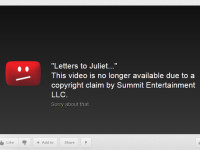The Supreme Court of Canada’s Spencer decision is still only a few days old, but it has become clear that the ruling has left the government’s privacy and lawful access strategy in tatters. I’ve posted earlier on how the decision – which held that Canadians have reasonable expectation of privacy in their subscriber information and that voluntary disclosure of such information to the police constitutes an unlawful search – blows away the government’s plans for Bills C-13 and S-4 by contradicting longstanding government policy positions.
While there are options for the government to establish reforms that are consistent with the court ruling and that would grant police the access they say they need, government ministers have instead adopted a rather bizarre response of saying anything, no matter how inconsistent with prior positions, the court’s analysis, or public comments from authorities such as the Privacy Commissioner of Canada. There is admittedly a track record for this: Conservatives have dismissed privacy concerns from Carole Todd, the Boys and Girls Club of Canada, the Privacy Commissioner of Canada, and many more. Further, the Conservative leader in the Senate claims Spencer has “no impact whatsoever” on Bill S-4.










